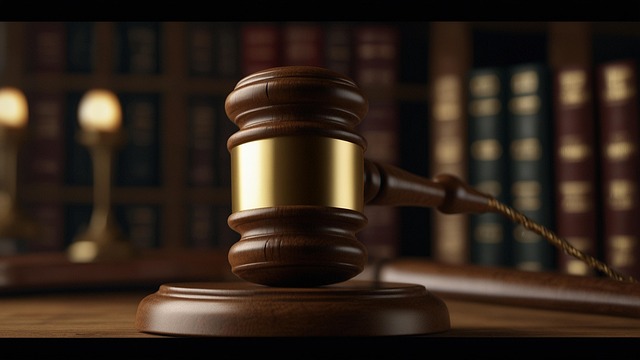Mail wire fraud, a digital-age concern, uses electronic systems to manipulate financial transactions, targeting individuals and institutions. The Right to a Fair Trial Constitution is vital for combating these offenses, offering protections against unfair treatment through legal representation and jury trials. To counter evolving scams, philanthropic and political efforts focus on public education, cybersecurity, and financial transparency. In cases involving complex fraud schemes, defense attorneys scrutinize evidence gathering to protect clients' rights, emphasizing the due process clause. Staying vigilant, verifying legitimacy, and knowing constitutional rights can help avoid mail wire fraud and safeguard financial integrity.
Mail wire fraud, an insidious practice targeting unsuspecting individuals, has evolved with the digital age. This comprehensive guide delves into the intricacies of understanding and combating this growing criminal phenomenon. From recognizing warning signs to exploring constitutional protections like the Right to a Fair Trial, each section offers vital insights. We examine how due process and evidence handling in fraud cases must adapt, while also providing preventative measures to safeguard your financial integrity in an ever-changing landscape.
- Understanding Mail Wire Fraud: A Comprehensive Overview
- The Right to a Fair Trial: Protections Against Financial Scams
- Constitutional Rights and Digital Age Criminals
- Evidence and Due Process in Fraud Cases
- Preventative Measures: Safeguarding Your Financial Integrity
Understanding Mail Wire Fraud: A Comprehensive Overview

Mail wire fraud is a sophisticated criminal practice that poses significant risks to individuals and institutions alike. It involves the fraudulent use of electronic communication systems to manipulate financial transactions, often with the intent to steal money or sensitive information. This form of fraud has become increasingly prevalent in today’s digital age, where quick and secure online transfers are the norm. By exploiting the speed and accessibility of mail services, perpetrators can orchestrate complex schemes that can have devastating consequences for victims.
Understanding mail wire fraud requires a grasp of its various tactics and techniques. Culprits may impersonate legitimate organizations or individuals to gain trust, then use this leverage to divert funds or access personal data. They often operate across the country, leveraging differences in state laws and regulations to their advantage. However, with proper awareness and proactive measures, individuals can protect themselves. Ensuring a fair trial under the Right to a Fair Trial Constitution is paramount, and winning challenging defense verdicts against these fraudulent claims requires meticulous documentation, swift action, and expert legal counsel.
The Right to a Fair Trial: Protections Against Financial Scams

In modern times, as financial schemes become increasingly sophisticated, ensuring a fair trial for those accused of white-collar crimes, such as mail wire fraud, is more critical than ever. The Right to a Fair Trial, enshrined in the Constitution, serves as a bulwark against financial scams and fraudulent activities that can disrupt the stability of both individual lives and societal economic structures. This right guarantees that individuals accused of these crimes receive a just hearing, with protections including the right to legal representation, confrontation of witnesses, and a jury trial.
The philanthropic and political communities play a significant role in supporting victims and advocating for stronger white-collar defense mechanisms. By raising awareness about these issues and pushing for stricter regulations on economic crimes, they contribute to a more robust legal framework that can deter future scams and protect the vulnerable. This collaborative effort ensures that justice is not only served but also promotes transparency and integrity within the financial sectors.
Constitutional Rights and Digital Age Criminals

In the digital age, mail wire fraud has evolved, posing unique challenges to our justice system. While the Right to a Fair Trial, enshrined in the Constitution, remains paramount, criminals have exploited technological advancements to commit sophisticated scams. These modern-day offenders navigate the intricate web of online transactions and encrypted communications, making traditional investigative methods more complex. As a result, ensuring due process becomes an arduous task for law enforcement agencies.
The philanthropic and political communities must remain vigilant in combating these digital age crimes. Educating the public about potential scams and implementing stringent cybersecurity measures are essential steps. Moreover, promoting transparency within financial institutions can help prevent and detect fraudulent activities early on. A balanced approach that respects individual rights while holding criminals accountable is crucial to maintaining the integrity of our legal system, especially as we navigate the ever-changing landscape of technology and its implications for mail wire fraud.
Evidence and Due Process in Fraud Cases

In mail wire fraud cases, evidence collection and due process are paramount. The Right to a Fair Trial Constitution ensures that individuals accused of such high-stakes cases receive a just hearing, protected from arbitrary or unfair procedures. This includes meticulous documentation and preservation of evidence, ensuring its admissibility in court. White collar defense attorneys play a crucial role in navigating these complexities, scrutinizing the process by which evidence is gathered to protect their clients’ rights.
General criminal defense strategies often involve challenging the validity of evidence, especially in white-collar cases where fraud schemes can be intricate and subtle. The due process clause acts as a safeguard, ensuring law enforcement and prosecutors adhere to legal protocols. This balance is essential, particularly in complex financial crimes, to prevent overreach by authorities while maintaining the integrity of the justice system.
Preventative Measures: Safeguarding Your Financial Integrity

Protecting your financial integrity is paramount when it comes to avoiding mail wire frauds. One of the most effective preventative measures is staying informed and vigilant. Always be cautious of unsolicited emails or calls requesting sensitive financial information, such as bank details or personal identification numbers (PINs). If you’re unsure about a communication’s legitimacy, contact the sender directly through official channels to verify their request.
Additionally, ensuring access to robust general criminal defense mechanisms is crucial. The Right to a Fair Trial Constitution guarantees certain protections, including the right to a jury trial and the possibility of a complete dismissal of all charges if found innocent. Leveraging these rights can significantly mitigate potential losses from frauds and protect your financial and legal integrity.
Mail wire fraud remains a pervasive threat, but understanding its intricacies is the first step towards protection. By recognizing the various forms and methods, individuals can safeguard their financial integrity. The right to a fair trial, as guaranteed by the Constitution, plays a crucial role in combating these scams, ensuring that due process is followed and victims receive justice. Together with heightened digital security measures, we can navigate the digital age more securely, protecting ourselves from fraudulent activities while upholding our constitutional rights.






